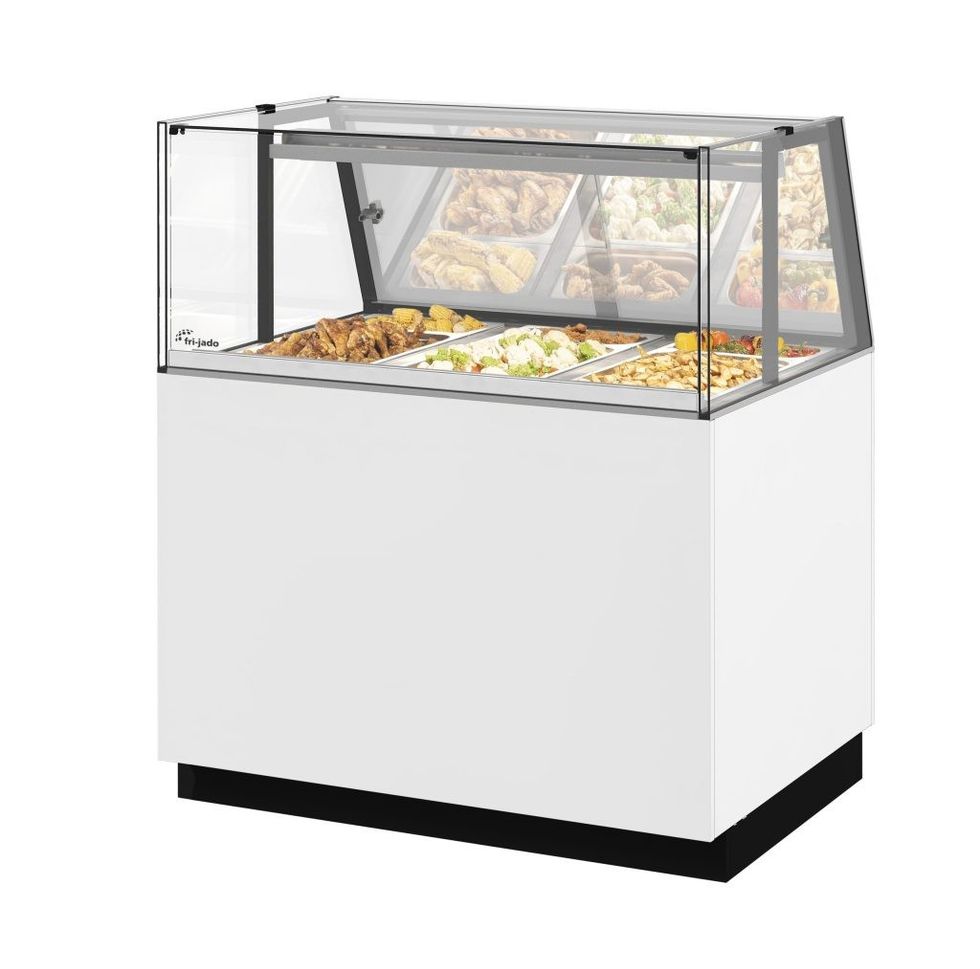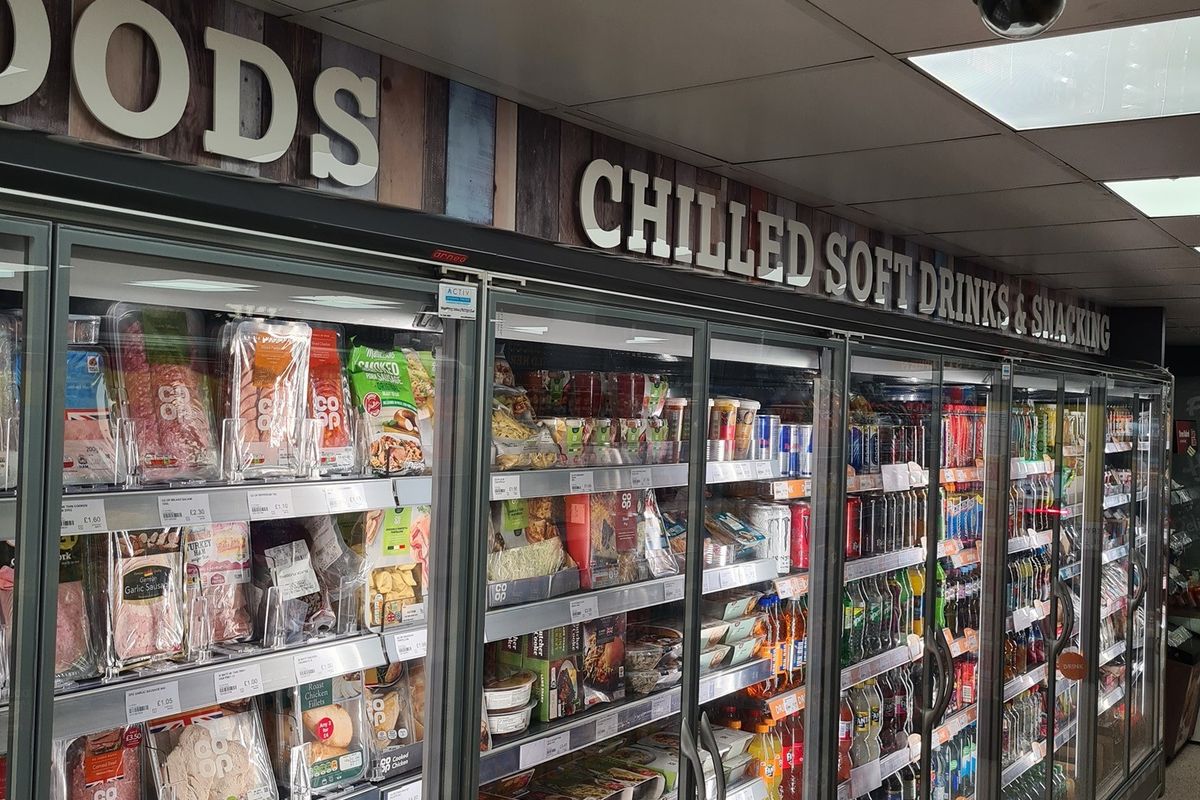Our friends at freezer-masters Husky – a leading global refrigeration specialist with over 25 years’ experience and recognised for delivering the highest standards in refrigeration – got in touch to explain exactly what a cool proposition it is right now to increase and update your chiller and freezer profile. Because as the demand for frozen and chilled foods continues to escalate, convenience stores have a golden opportunity to position themselves as the ultimate destination for time-pressed consumers seeking high quality convenient meal solutions.
By diversifying offerings and embracing technological advancements, c-stores are well positioned to take advantage of this growing trend, enhancing customer satisfaction, and driving business growth.
Chilled and Frozen foods last longer and are less likely to spoil, so many consumers with ever tightening budgets are choosing the chilled and particularly frozen options to cut down on waste and save money.
Chilled food now represents 10 per cent of all UK retail foods at a value of £10 billion, with the frozen food market alone now worth £1.7 billion, Husky revealed. According to BFFF (British Frozen Food Federation) frozen vegetables, meat & poultry, potato products, ready meals and savoury foods account for the highest growth.
With this growing demand, many retail outlets are making the decision to extend their chiller and freezer sections to ensure they dedicate adequate refrigeration space and maximise the opportunity in this growing sector.

The correct refrigeration is essential to keep perishable foods safe for customers and prolong their shelf life. Therefore, investing in the correct refrigeration equipment for your store can make all the difference to your success.
When choosing which fridges and freezers to invest in, consider the size of your store and how much space you should be dedicating to chilled & frozen products. It is important to consider what types of products your customers will be interested in and what kind of storage these products require.
Obviously budget and ongoing running costs must also be considered, a more expensive fridge or freezer to purchase may well be more cost effective in the long run.
The Husky PRO glass fronted Display Fridges and Freezers – such as the C10 PRO Display Fridge – are the perfect solution for any store. Being glass fronted, they are more energy efficient and environmentally friendly than the traditional open fronted multideck models.
One of the benefits of the glass fronted models is that customers can see the products inside without having to open the chiller or freezer. This helps to maintain a more constant temperature inside and means the chiller or freezer can work more efficiently preventing cold air from escaping and leading to lower energy consumption.
In recent years, the c-store has undergone a delicious transformation. Ice cream, once an afterthought, is now taking centre stage, captivating the taste buds of customers on the go. The growing demand for tasty treats has spurred a remarkable upturn in ice cream sales, establishing convenience stores as the ultimate pit stop for frozen delights.
The sleek and modern design of the Husky F14 Retro compact ice cream display freezer is catching the eyes of consumers. These freezers are not just a place to store frozen treats; they are a visual centerpiece that invites consumers to explore the exciting array of ice cream and frozen dessert options available.
For more information on the Husky Commercial range, visit: husky.co.uk
“Best served chilled”
Michelle Frost is General Manager at Mars Chocolate Drinks and Treats (MCD&T), and she points out just how vital chillers are to her category of chilled milk drinks, with the total flavoured milk category in the UK worth a staggering £634 million.
Across convenience, sales have grown by 13 per cent over the past year. Convenience sales now contribute 44 per cent of total category sales ( £282 million).
Coffee- and chocolate-flavoured milk are the leading subcategories, with coffee-flavoured milk the largest subcategory.
“We believe that our range offers a winning combination, iconic brands in eye-catching packaging,” says Frost. “The PMP and well-known brands draw attention to the product within what can be a crowded chiller.” The best solution, however, is to get more chiller space!
The MCD&T range can be stored ambient but is best served chilled, so for best sales, keep it up-to-date and cool.
Temperature-controlled
Meanwhile, chiller experts Fri-Jado are starting the year with the high-profile launch of an all-new hot Deli Counter range.
Although not strictly speaking chillers, these machines similarly work to change temperatures to make food perfectly presentable to customers, and therefore fit the category of “temperature-adjusting.” Fri-Jado’s innovative series ensures that food is kept at the perfect temperature for service, whilst also being displayed in the best way to ensure customer appeal is as strong as possible, available in a choice of lengths (1,200mm, 1,500mm or 1,800mm) and complete with warm LED internal lighting.

Available in drop-in and standard formats, the range offers operators significant versatility for their deli offering. Compatible with other counter units in the Fri-Jado portfolio, including the MCC range, the new Hot Deli counters deliver a compact solution for a complete line-up of serve-over, self-service, hot, cold and ambient food holding and display concept. Designed to suit a wide range of store sizes, the units offer flexibility to mix and match different food types whilst maintaining uniform quality.
With the food-on-the-move market increasingly returning to pre-pandemic levels and more and more consumers returning to towns and city-located offices, it has never been more important for operators to positively highlight the food they are selling to potential customers – hot or cold.
“This new hot Deli Counter is a genuine step forward for the sector,” said Sales Director Gary Thacker. “Fri-Jado has long been recognised for its commitment to innovation, and this new unit can truly be a game changer for operators across the UK.”

